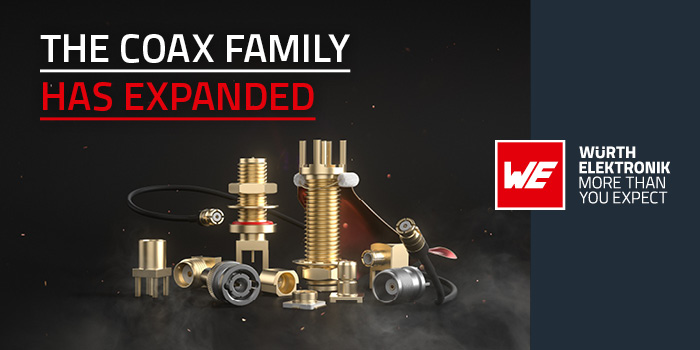
Rebeca Obregon: Turning Farnell around by reclaiming the power of people and partnerships
In a recent conversation with Evertiq, Rebeca Obregon, President of Farnell, reflected on her first year in the role, Farnell’s strategic evolution, and the role of culture, technology, and resilience in shaping the future of electronics distribution.
When Rebeca Obregon joined Farnell as President in July 2024, the task ahead was clear and urgent. The business wasn’t in good shape, and turning it around required quick, decisive action. But rather than focusing first on processes or cost-cutting, Obregon began with people.
“The biggest challenge was to turn around the business,” Obregon told Evertiq. “And the most important goal was culture, creating a culture of collaboration so that we could get through the difficult times together.”
That belief in people as the engine of transformation echoes throughout Farnell’s new strategy, which under Obregon’s leadership is being executed with clarity and purpose. Farnell is now working more closely than ever with their parent company Avnet, leveraging what Obregon calls “the power of one”, the ability to support the entire product lifecycle, from prototyping to high-volume production.
Obregon, who spent more than three decades in the semiconductor industry before joining Avnet in 2021, was drawn to the company’s values. “Inclusion is one of Avnet’s core values, and not just a word. It’s a true cultural principle. That was one of the reasons I joined,” said Obregon.
A wider role in the supply chain
Farnell positions itself as a high-service distributor, and that model is now being refined for a more global and digital future. Obregon sees Farnell’s strength in its ability to support design engineers early in the development phase, through its e-commerce platform and the element14 community, and to help them scale their projects efficiently through Avnet’s broader capabilities.
“What we offer is something different: a seamless experience that supports customers from the first idea to full-scale production. We’ve enhanced our infrastructure and are now focused on offering the best customer experience possible,” Rebecca Obregon said in the interview with Evertiq.
With 48 websites in local languages and currencies, multiple regional warehouses and dedicated sales teams, Farnell’s physical and digital footprint is extensive. But Obregon’s focus is on using that infrastructure more intelligently, not just expanding for its own sake.
“We’re not necessarily talking about geographic expansion,” Obregon noted, “but about better leveraging our existing footprint. Our warehouses in the UK, Mexico, the US, Singapore and China allow us to respond faster, with more flexibility, and they help us manage geopolitical risk.”
Operational resilience and hard-earned lessons
The conversation inevitably turned to supply chain disruption. Obregon explained that the past few years have exposed the fragility of global logistics and manufacturing systems, but is quick to point out that volatility isn’t new to this industry.
“I’ve been in the semiconductor industry for over 35 years. Disruption is part of the game whether it’s a pandemic, natural disaster, or geopolitics,” she told Evertiq.
What has changed, however, is how companies prepare. For Farnell, diversification is the key: diversified sales channels, diversified warehousing, and above all, strong relationships.
“It’s about having a multi-channel model: e-commerce, field sales, inside sales, meeting customers where they want to be. But it’s also about our relationships with suppliers, customers, and our own employees. In the end, even in a world of AI and automation, it’s still people doing business with people.”
Technology, AI, and agility
When asked about the future, Obregon doesn’t talk only about artificial intelligence or sustainability in isolation. She sees them as part of a broader trend: accelerating change.
“It’s not just about keeping up, it’s about staying ahead,” Obregon told Evertiq. “And it’s not just about digital tools; it’s about agility. The companies that thrive during change,not just adapt to it,will be the ones that survive and grow.”
AI is already influencing both internal operations and the customer experience. Farnell is investing in tools that make its platforms more efficient and intuitive, but also in making sure its product offerings match the needs of customers operating in AI-driven markets. Sustainability, meanwhile, is being embedded into operations, from optimising warehouse shipments to reducing the carbon footprint of global logistics.
But the backdrop to all of this remains uncertain. “Geopolitics isn’t a new trend, but its impact is growing. We might have a clear strategy today, and need to adjust it tomorrow based on global events,” Obregon noted.
Leadership and legacy
Obregon is one of very few women in such a senior position in the global electronics distribution industry, and she embraces that visibility as a responsibility, not just a role.
“It’s about inspiring young women to go into STEM, and then supporting each other once we’re in the industry,” Obregon said. “Mentoring, advocating, making space. That’s part of the job now.”
Rebeca Obregon’s vision of leadership is deeply tied to collaboration and shared ambition. “What excites me most is the opportunity we have. Together with Avnet, we can unlock so much value for our customers across the entire product lifecycle. We call it the ‘power of one.’”
But beyond strategy, there’s a very human ambition that she shares with her team: joy.
“I always tell my teams: have fun. When people enjoy what they’re doing and who they’re doing it with, results follow. Success follows.”

